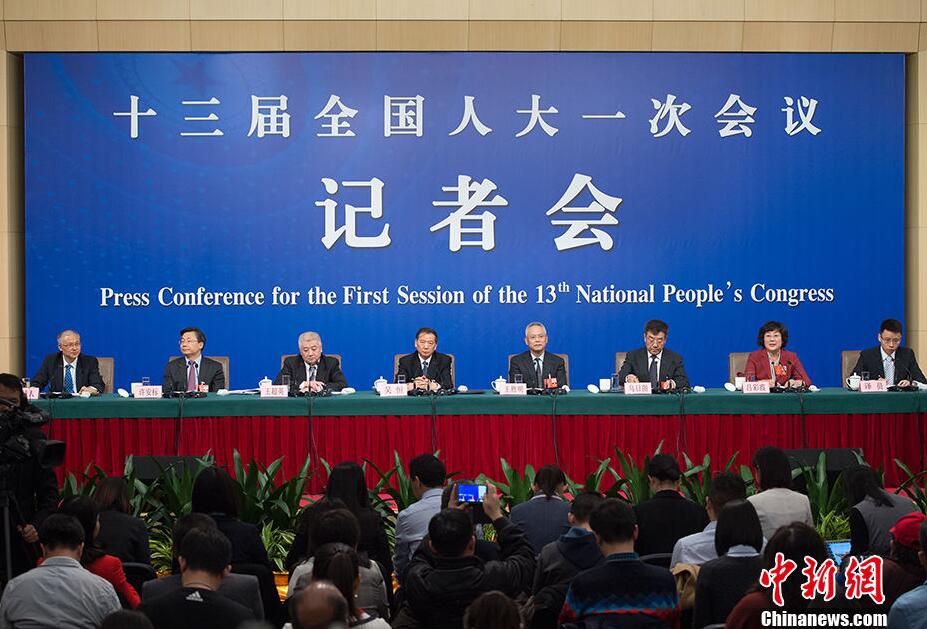
The five functional modules of the operating system are processor management, memory management, device management, file management and operation management. Processor management The most basic function of processor management is to process interrupt events. After configuring the operating system, various events can be processed.
The functions of the computer operating system include: processor management, memory management, device management, file management, job management and other functional modules. Processor management. The most basic function of processor management is to handle interrupt events. The processor can only detect interrupt events and generate interrupts and cannot process them.
Storage management is divided into several functions: storage allocation, storage sharing, storage protection, and storage expansion.Equipment management has the following functions: equipment allocation, equipment transmission control, and equipment independence. File management: file storage space management, directory management, file operation management, file protection.
The operating system should usually include the following five functional modules: (1) Processor management. When multiple programs are running at the same time, solve the problem of processor (cpu) time allocation. ( 2) Operation management. The program to complete an independent task and its required data constitute a task.
The function of the operating system is mainly reflected in the management of computer resources - microprocessors, memory, external devices, files and tasks. The operating system sets this management function into the corresponding program management module, and each management module is responsible for a certain function.That is, the five functions of the operating system.
The operating system has five functions: processor management: mainly controls and manages the work of the CPU. Storage management: mainly carry out memory allocation and management device management: mainly manage basic input and output device file management: responsible for the organization, storage, operation and protection of computer files, etc.

There are the following types of management systems: the management system of the finished product set. This kind of system is a stereotyped management system, which makes a small number of functional adjustments to the software through the parameter settings of the software.
Transaction Processing System (TPS): Operators and supervisors are used to input transactions, events, sort, list, merge updates, output detailed reports, lists and summaries, etc. Management Information System (MIS): Middle managers are used to input general transaction data and simple models to process routine reports.
Adgecal management system Academic management system is one of the most core management systems of the school, which is responsible for arranging and managing the school's teaching activities. It includes curriculum setting, teaching plan, teacher arrangement, examination management and other contents.
VMware vSphere: It is a virtualization management platform that can be used to manage virtual machines, storage and networks, etc. Nagios: It is an open source network monitoring system that can be used to monitor network devices, servers and applications, etc.
Financial subsystem: providing the function of financial management information; Decision support subsystem: make the logistics information system reach a higher level.
ERP management system brand Youyou, Jindie International Software, Wave Software, Dingjie Software, Zhenghang Software. Use friends.
1. System management refers to the information technology system that manages enterprises, and file management is one of the five major functions of the operating system.First, network management refers to the centralized management of resources on the network by network administrators through network management programs.
2. System Management regards organizational components as interrelated and interdependent systems, so it advocates applying the system concept to the management concept.
3. System management refers to the process of maintaining, managing and monitoring computer systems. As an important part of enterprise informatization construction, the importance of computer system management cannot be ignored.
Hearthstone arena class win rates reddit-APP, download it now, new users will receive a novice gift pack.
The five functional modules of the operating system are processor management, memory management, device management, file management and operation management. Processor management The most basic function of processor management is to process interrupt events. After configuring the operating system, various events can be processed.
The functions of the computer operating system include: processor management, memory management, device management, file management, job management and other functional modules. Processor management. The most basic function of processor management is to handle interrupt events. The processor can only detect interrupt events and generate interrupts and cannot process them.
Storage management is divided into several functions: storage allocation, storage sharing, storage protection, and storage expansion.Equipment management has the following functions: equipment allocation, equipment transmission control, and equipment independence. File management: file storage space management, directory management, file operation management, file protection.
The operating system should usually include the following five functional modules: (1) Processor management. When multiple programs are running at the same time, solve the problem of processor (cpu) time allocation. ( 2) Operation management. The program to complete an independent task and its required data constitute a task.
The function of the operating system is mainly reflected in the management of computer resources - microprocessors, memory, external devices, files and tasks. The operating system sets this management function into the corresponding program management module, and each management module is responsible for a certain function.That is, the five functions of the operating system.
The operating system has five functions: processor management: mainly controls and manages the work of the CPU. Storage management: mainly carry out memory allocation and management device management: mainly manage basic input and output device file management: responsible for the organization, storage, operation and protection of computer files, etc.

There are the following types of management systems: the management system of the finished product set. This kind of system is a stereotyped management system, which makes a small number of functional adjustments to the software through the parameter settings of the software.
Transaction Processing System (TPS): Operators and supervisors are used to input transactions, events, sort, list, merge updates, output detailed reports, lists and summaries, etc. Management Information System (MIS): Middle managers are used to input general transaction data and simple models to process routine reports.
Adgecal management system Academic management system is one of the most core management systems of the school, which is responsible for arranging and managing the school's teaching activities. It includes curriculum setting, teaching plan, teacher arrangement, examination management and other contents.
VMware vSphere: It is a virtualization management platform that can be used to manage virtual machines, storage and networks, etc. Nagios: It is an open source network monitoring system that can be used to monitor network devices, servers and applications, etc.
Financial subsystem: providing the function of financial management information; Decision support subsystem: make the logistics information system reach a higher level.
ERP management system brand Youyou, Jindie International Software, Wave Software, Dingjie Software, Zhenghang Software. Use friends.
1. System management refers to the information technology system that manages enterprises, and file management is one of the five major functions of the operating system.First, network management refers to the centralized management of resources on the network by network administrators through network management programs.
2. System Management regards organizational components as interrelated and interdependent systems, so it advocates applying the system concept to the management concept.
3. System management refers to the process of maintaining, managing and monitoring computer systems. As an important part of enterprise informatization construction, the importance of computer system management cannot be ignored.
Hearthstone Arena class tier list 2024
author: 2025-01-13 21:15bingo plus update today Philippines
author: 2025-01-13 20:50100 free bonus casino no deposit GCash
author: 2025-01-13 21:25Hearthstone Arena class tier list 2024
author: 2025-01-13 21:25 Casino Plus GCash login
Casino Plus GCash login
924.33MB
Check Casino free 100 no deposit
Casino free 100 no deposit
869.99MB
Check Hearthstone Wild Decks
Hearthstone Wild Decks
554.66MB
Check UEFA Champions League standings
UEFA Champions League standings
798.66MB
Check Arena plus APK
Arena plus APK
335.78MB
Check DigiPlus stock
DigiPlus stock
392.13MB
Check European Cup live
European Cup live
623.74MB
Check DigiPlus fair value
DigiPlus fair value
821.24MB
Check Hearthstone Arena Tier List
Hearthstone Arena Tier List
395.14MB
Check bingo plus update today
bingo plus update today
786.12MB
Check UEFA EURO
UEFA EURO
377.83MB
Check UEFA Champions League live streaming free
UEFA Champions League live streaming free
194.98MB
Check Arena Plus login
Arena Plus login
439.64MB
Check Casino redeem
Casino redeem
731.77MB
Check Casino Plus
Casino Plus
918.96MB
Check DigiPlus Philippine
DigiPlus Philippine
116.81MB
Check Casino free 100 no deposit
Casino free 100 no deposit
238.52MB
Check Bingo Plus
Bingo Plus
635.22MB
Check Casino Plus app
Casino Plus app
159.87MB
Check Hearthstone Arena Tier List
Hearthstone Arena Tier List
968.98MB
Check UEFA European championship
UEFA European championship
122.66MB
Check Champions League
Champions League
645.98MB
Check Casino redeem
Casino redeem
763.99MB
Check Hearthstone Arena Tier List
Hearthstone Arena Tier List
242.54MB
Check Casino Plus app
Casino Plus app
184.66MB
Check DigiPlus fair value
DigiPlus fair value
941.83MB
Check UEFA EURO
UEFA EURO
653.53MB
Check Hearthstone Arena Tier List
Hearthstone Arena Tier List
466.92MB
Check European Cup live
European Cup live
965.17MB
Check UEFA Champions League live
UEFA Champions League live
978.47MB
Check UEFA EURO
UEFA EURO
715.68MB
Check UEFA live free
UEFA live free
795.56MB
Check Hearthstone Arena Tier List
Hearthstone Arena Tier List
847.68MB
Check Hearthstone Arena class tier list 2024
Hearthstone Arena class tier list 2024
677.51MB
Check Hearthstone arena
Hearthstone arena
323.46MB
Check European Cup live
European Cup live
112.61MB
Check
Scan to install
Hearthstone arena class win rates reddit to discover more
Netizen comments More
2762 Europa League app
2025-01-13 22:17 recommend
307 UEFA EURO
2025-01-13 21:54 recommend
455 Casino Plus free 100
2025-01-13 21:00 recommend
2406 Hearthstone deck
2025-01-13 20:51 recommend
1274 Champions League
2025-01-13 20:08 recommend